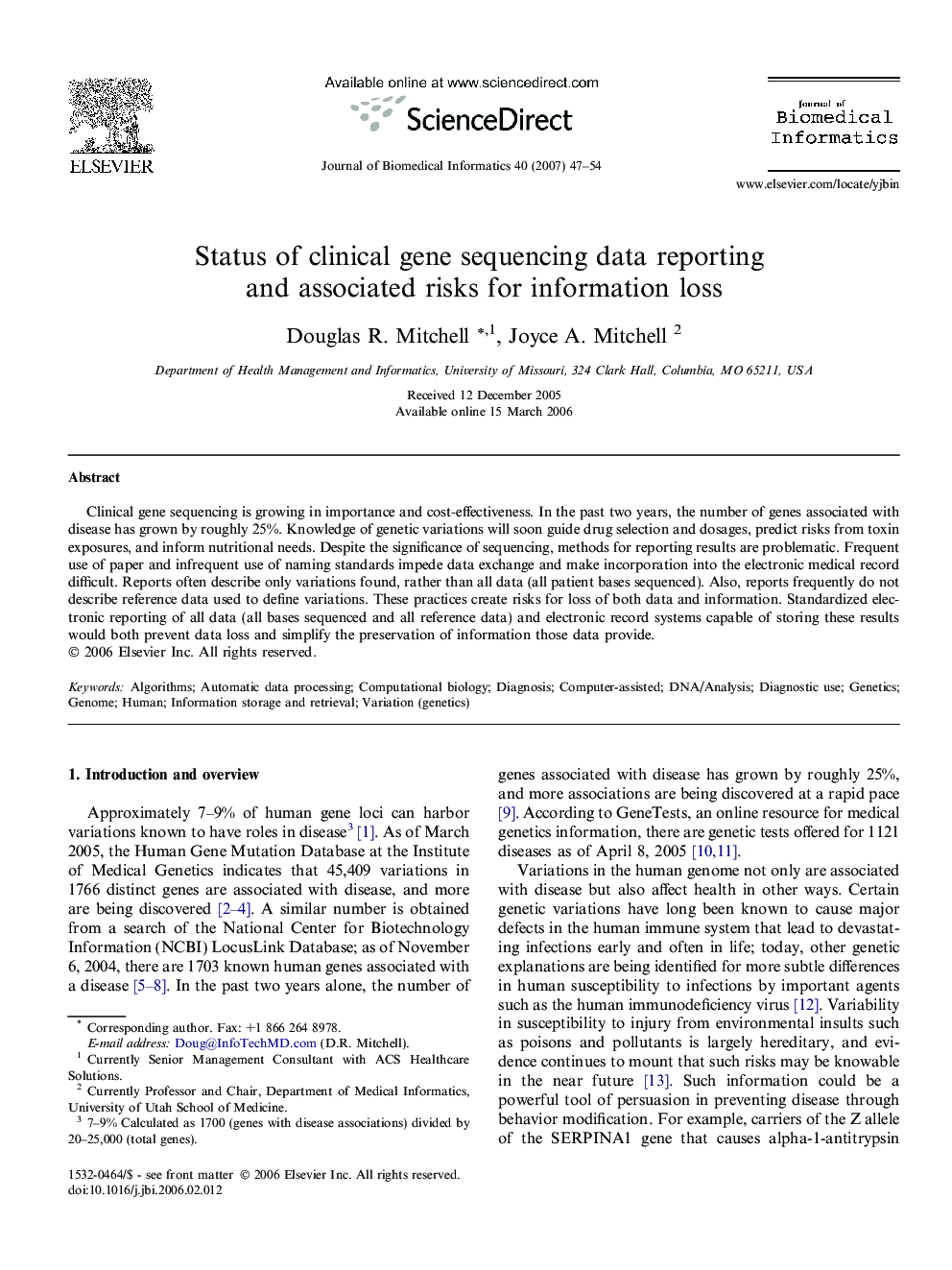| Article ID | Journal | Published Year | Pages | File Type |
|---|---|---|---|---|
| 519110 | Journal of Biomedical Informatics | 2007 | 8 Pages |
Clinical gene sequencing is growing in importance and cost-effectiveness. In the past two years, the number of genes associated with disease has grown by roughly 25%. Knowledge of genetic variations will soon guide drug selection and dosages, predict risks from toxin exposures, and inform nutritional needs. Despite the significance of sequencing, methods for reporting results are problematic. Frequent use of paper and infrequent use of naming standards impede data exchange and make incorporation into the electronic medical record difficult. Reports often describe only variations found, rather than all data (all patient bases sequenced). Also, reports frequently do not describe reference data used to define variations. These practices create risks for loss of both data and information. Standardized electronic reporting of all data (all bases sequenced and all reference data) and electronic record systems capable of storing these results would both prevent data loss and simplify the preservation of information those data provide.
